Questions: Is it a legitimate tool to root out moral corruption? Could it encourage blackmail?
By Robert Moynihan, ITV Editor

Two American journalists — J.D. Flynn and Ed Condon (photos below), who have founded a news agency called The Pillar — have warned the Vatican that governments (perhaps that of China) might obtain compromising information about Vatican officials which could potentially lead to blackmail. The case exploded when the two journalists revealed their concerns to the world.
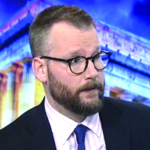 This story sets before us allegations about the sexual activities of a priest, first reported July 20 by a relatively new Catholic news agency, The Pillar, founded earlier this year by two former editors at Catholic News Agency (owned by EWTN), JD Flynn and Ed Condon, from which both resigned at the very end of 2020.
This story sets before us allegations about the sexual activities of a priest, first reported July 20 by a relatively new Catholic news agency, The Pillar, founded earlier this year by two former editors at Catholic News Agency (owned by EWTN), JD Flynn and Ed Condon, from which both resigned at the very end of 2020.
A sad enough story, but not the first time such a story has been told. We live in a fallen world, and we know the devil prowls about, seeking the ruin of souls. The Church seeks to save those souls, wrenching them back out of the devil’s grasp through the grace of God.
The priest in question abruptly resigned his post with the US bishops’ conference. So with that decision the story took on a certain seriousness.
Remote tracking
Then emerged something new: the way the evidence in this case had been gathered.
The evidence of the alleged sexual activity had been gathered — the news agency itself revealed — by remote tracking of the priest’s phone.
In other words, everywhere the priest went with his phone, reports of his location were being sent into a central database, and a way to access that database had been made available to the news agency, The Pillar.
The news agency concluded that the priest had been in places where various liaisons of a sexual nature were quite “likely” to have occurred.
No evidence of an actual occurrence has been produced.
So the priest in this case had no privacy. The record of his movements was an open book.
Well, an open book to those who have access to the database… But who has access to such a database?
Technology offered to others earlier
Then, remarkably, the editors of another Catholic news agency (named Catholic News Agency, CNA) published their own startling report about The Pillar’s report, revealing that they themselves had been offered this very same location-tracking program three years ago, in 2018 — and had refused to use the program to track the movements of priests.
“The issue was first raised in 2018, when a person concerned with reforming the Catholic clergy approached some Church individuals and organizations, including Catholic News Agency,” CNA reported.
“A Catholic tech expert who also spoke to CNA said the technology is so precise that it can provide the names and addresses of the targeted clergy and also tell what other app users he might spend time with and where their meetings take place,” CNA said.
Who else has this software?
This bit of news sheds a new light on the case.
A tracking software that can be used to track priests had been offered (by someone) to more than one Catholic news agency.
One agency has used the software and exposed the activities of a priest.
Another agency has, evidently, not used the software. But… were there other news agencies that had been offered this software? Was anyone else using this software? (Note: Inside the Vatican has never been offered this software by anybody.)
As a matter of speculation, if this software was available two years ago, might it not be that there are many news agencies, many news organizations, and of course many investigation agencies, that also have this software, and are already using it to track the movements of priests everywhere, and not only of priests, but also of… bishops… and of cardinals… and (why not?) of ministers, rabbis, imams… and of all sorts of other leaders, inside and outside of organized religion?
…And whom else might it be used to track?
Then, raising the bar to another level in a final twist, one reader wrote to me, asking this question:
“If we link the idea of surveillance of priests to determine if they are engaging in various types of sexual misconduct to the idea of the other story we have been following in recent days, the story of the suppression of the old liturgy, do we not come spontaneously to this question: Might it not be possible that every priest who celebrates the old Latin Mass could be placed under this type of surveillance, so that all movements of such priests could be tracked, and the locations of all such Masses determined by it?”
This question led me to think of St. Edmund Campion, who was arrested in England in 1581 for celebrating Mass in private homes when the Catholic Mass had been made illegal by the authorities of the time…
Blackmail
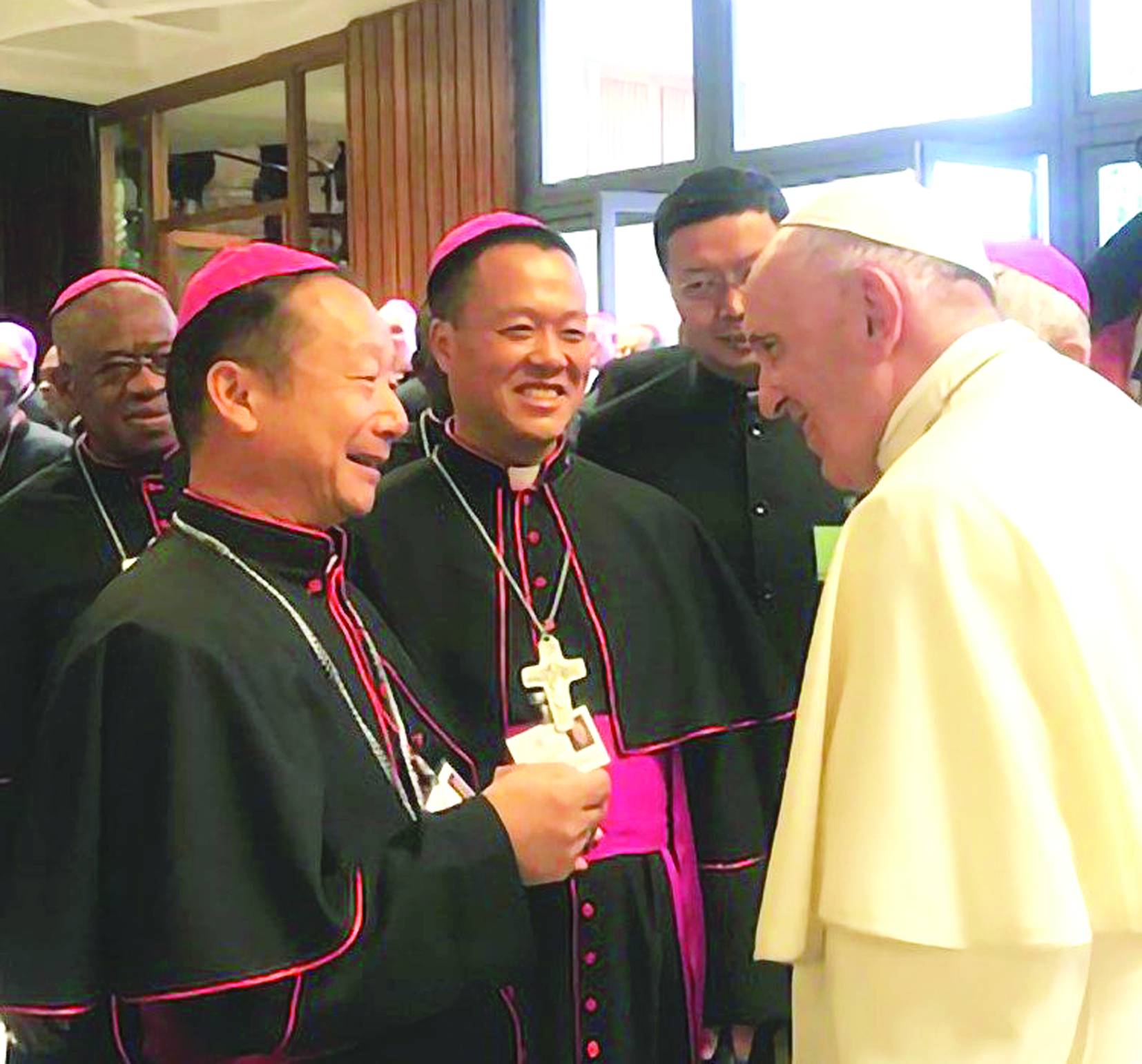
Chinese bishops at the October 2018 Synod of Bishops
A new element of the situation was then revealed on July 27, when the editors at The Pillar published a follow-up story, quickly picked up and reported on by news outlet Breitbart, suggesting that the compromising use of “hookup” apps by people who work in the Vatican could be creating a vulnerability to blackmail.
Further, it raises the question of whether such blackmail could be a possible explanation for the behavior of the Vatican toward Communist China.
The article suggests that the Vatican’s September 2018 agreement with China (the contents of which have never been made public) — an agreement which was recently renewed — may have been entered into, or abided by, in part due to threats from China to expose certain activities in the Vatican to global view.
The (possible) blackmail is occurring, perhaps (the article is proposing a hypothesis) because — as The Pillar article reports — a number of people, from “non-public areas” inside Vatican City, in 2018 used their cell phones to connect to “location-based homosexual and heterosexual hookup apps” which facilitate the possibility of sexual encounters between homosexuals and between heterosexuals.
Still, the article does not identify who might have been using such “hook-up apps” — whether Vatican monsignors, or lay workers, or even guests in Vatican City (every October in Rome there are international meetings hosted by the Vatican which are attended by people from all over the world).
So this article is a construction of suppositions based on data that does not seem to conclusively identify a single person yet — unless such identification has not been made public.
Apps’ data accessible to the Chinese government
According to The Pillar, “Use of the Grindr app among Vatican residents and officials and within the non-public areas of Vatican City State could present a particular diplomatic security risk for the Holy See in its dealings with China.”
The Pillar notes that “the company was launched in California, but acquired by the Chinese gaming firm Beijing Kunlun Tech in 2016 for $93 million. While it was under Chinese ownership, the U.S. Committee on Foreign Investment in the United States (CFIUS) deemed the app’s ownership a national security risk, over concerns that data from the app’s some 27 million users could be accessed by the Chinese government and used for blackmail. The app was sold in 2020 to a company based in the United States for a reported $608 million, at the demand of the U.S. government.”
The Pillar adds: “While it was still under Chinese ownership, Grindr allowed third-party engineers access to the personal data of millions of U.S.based users, including their personal details and HIV status, according to media reports last year.”
The Pillar concludes: “Because Chinese law requires tech companies to provide access to national intelligence-gathering agencies, app data could be available to the Chinese government. Under intelligence and cybersecurity laws, Kunlun Tech could have been compelled to turn over the data from company servers to the Chinese government for any reason pertaining to ‘national security,’ experts have warned.”
“Negotiations” with Vatican’s Secretary of State
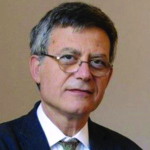 Another element of great interest in this account is a brief narrative of what seems to have been a sort of “journalistic negotiation” between the editors of The Pillar and… the Vatican Secretary of State, Cardinal Pietro Parolin.
Another element of great interest in this account is a brief narrative of what seems to have been a sort of “journalistic negotiation” between the editors of The Pillar and… the Vatican Secretary of State, Cardinal Pietro Parolin.
Here is that part of the story, with my own comments in italics in brackets:
“The Pillar met for more than 90 minutes with both Cardinal Pietro Parolin, Vatican Secretary of State, along with Dr. Paolo Ruffini, prefect of the Vatican’s dicastery for communications, to present its findings July 17. The meeting’s discussion was agreed by all parties to be mutually confidential, but the fact of the meeting was not itself off-the-record.”
[Note: A personal meeting between a journalist — referred to as “The Pillar,” – and Cardinal Parolin is not unheard of, but… it is really not common. In fact, a meeting with the Secretary of State, the second man in the Vatican after the Pope, lasting for 90 minutes, is extraordinary. The meeting was “to present its (The Pillar’s) findings.” This is what seems to have taken nearly 90 minutes: informing the cardinal that such information might have fallen into the hands of the Chinese government, and so, might have exposed him and the Pope to a type of “geopolitical blackmail.”]
“After the meeting’s conclusion, Ruffini requested questions from The Pillar, which he said he would submit to Parolin for a response, and asked for a week for the formulation of a response, to which The Pillar agreed.
[Note: This detail seems unusual. Usually a journalist comes to a Vatican meeting with questions in hand. In this case, the meeting occurs, lasting 90 minutes, and then the Vatican officials ask for questions to be submitted. So it does appear that there was not a normal interview, with questions during the interview, but rather a long presentation. But then, after such a lengthy presentation, why would there have been any need for the journalist to present any questions?]
“On July 18 [Sunday], the day after its meeting with Parolin and Ruffini, The Pillar was informed that a meeting with senior USCCB officials scheduled for Monday, July 19, had been cancelled. The Pillar was asked to submit written questions instead. Overnight between Sunday and Monday, one Catholic media outlet reported the possibility of forthcoming media reports on the issue of app signal data.”
[Note: So here we learn that things were happening that seem to have had the character of negotiations on both sides of the Atlantic. A meeting in Rome on July 17 with Parolin; a scheduled meeting in Washington on July 19 with the USCC leadership, canceled on the 18th. Then the leak by another news agency (CNA, the old agency of Flynn and Condon) early on the morning of Monday, July 19.
This report, by Alejandro Bermudez, was released at 3 a.m. on the 19th. The first sentence reads: “The prospect of private parties using national security-style surveillance technology to track the movements and activities of bishops, priests, and other Church personnel is raising concerns about civil liberties, privacy rights and what means are ethical to use in Church reform efforts.”
So it was now in the public domain that The Pillar was (in all likelihood) going to publish its information on the Grindr app use — and that this information had been gathered using what someone thought was “national security-style surveillance technology.”
All this suggests that what was occurring in these meetings may have had some of the characteristics of a negotiation, with one side proposing options regarding the timing of the publication of the information, and the other side, perhaps, requesting that the information not be published immediately, or that it be published only on certain conditions, or that it never be published…
“Late Sunday night [July 18], The Pillar submitted written questions to the USCCB at the conference’s request, and was then asked to extend an initial Monday deadline for response until the following day, which it did.”
Note: “Late Sunday night”? This detail is odd. Who at the bishops’ conference was working “late Sunday night” to receive the questions, which evidently were expected to be answered immediately on Monday morning? The bishops asked The Pillar “to extend an initial Monday deadline for a response until the following day.” The leaders of the USCC, it appears, were being asked by The Pillar to answer certain questions before Tuesday, “or else”… evidently, the publication of the investigation.]
“On Tuesday [July 20], USCCB officials offered to schedule a meeting with The Pillar in the afternoon, to which The Pillar agreed. En route to that meeting, The Pillar learned from media reports that USCCB General Secretary Msgr. Jeffrey Burrill had resigned in response to “impending media reports alleging possible improper behavior.”
[Note: The Pillar published its report on Monsignor Burrill’s use of the Grindr app on July 20.]
On July 23, the Vatican communications head, Dr. Paolo Ruffini, told The Pillar: “We have examined the questions you have posed to His Eminence the Secretary of State following on your meeting of 17 July. At this point, also in the light of what happened in recent days, I can say that no statement will be provided.”
USCCB official resigns amid misconduct suspicions
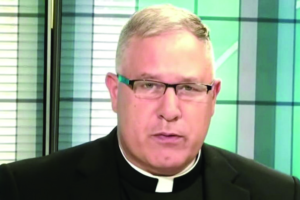 Msgr. Jeffrey Burrill, the general secretary of the U.S. Conference of Catholic Bishops, resigned from his post ahead of a media report alleging that he frequented gay bars and private residences while using a popular “hookup” app on his mobile device.
Msgr. Jeffrey Burrill, the general secretary of the U.S. Conference of Catholic Bishops, resigned from his post ahead of a media report alleging that he frequented gay bars and private residences while using a popular “hookup” app on his mobile device.
The report, published the afternoon of July 20 by The Pillar, a Catholic news site, is based on what it described as an analysis of commercially available app data correlated to Burrill’s mobile device. The analysis shows that Burrill used the app Grindr on a near-daily basis during parts of 2018, 2019 and 2020, according to the report.
CNA reported the previous day that Church officials were bracing for information derived from this type of digital technology to become public. Grindr is an app that describes itself as “the largest app for gay, bi, trans, and queer people.”
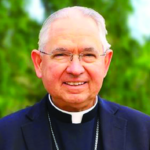 USCCB President Archbishop Jose Gomez announced Burrill’s resignation in a memo sent to all U.S. bishops the day the report appeared. The existence of the memo regarding the resignation was first reported by the National Catholic Reporter shortly after 10 a.m. EST that day, roughly two hours before The Pillar published its investigation. According to Gomez, Burrill was not accused of misconduct with minors, but resigned immediately “to avoid becoming a distraction to the operations and ongoing work of the Conference… The Conference takes all allegations of misconduct seriously and will pursue all appropriate steps to address them,” said Gomez.
USCCB President Archbishop Jose Gomez announced Burrill’s resignation in a memo sent to all U.S. bishops the day the report appeared. The existence of the memo regarding the resignation was first reported by the National Catholic Reporter shortly after 10 a.m. EST that day, roughly two hours before The Pillar published its investigation. According to Gomez, Burrill was not accused of misconduct with minors, but resigned immediately “to avoid becoming a distraction to the operations and ongoing work of the Conference… The Conference takes all allegations of misconduct seriously and will pursue all appropriate steps to address them,” said Gomez.
Burrill was elected to the post of general secretary at the November 2020 assembly of the USCCB. Prior to his term as general secretary, Burrill had served as Associate General Secretary for the USCCB since 2016. He is a priest of the Diocese of La Crosse and had previously served as a formator at the Pontifical North American College.
The conference general secretary oversees USCCB staff, projects, and committees, and facilitates dialogue between U.S. bishops and offices of the Vatican Curia. In 2021, Grindr was fined about $11.7 million by the Norwegian Data Protection Authority, after the organization said the app “transmitted users’ precise locations, user-tracking codes and the app’s name to at least five advertising companies” without the consent of the users. However, Jeff Bonforte, the CEO of Grindr, claimed in a blog on July 29 that “Grindr does not sell its data about users to anyone.” He went on to theorize that the data was acquired through some kind of third party but, even after an internal investigation, could only speculate on what means were actually used.
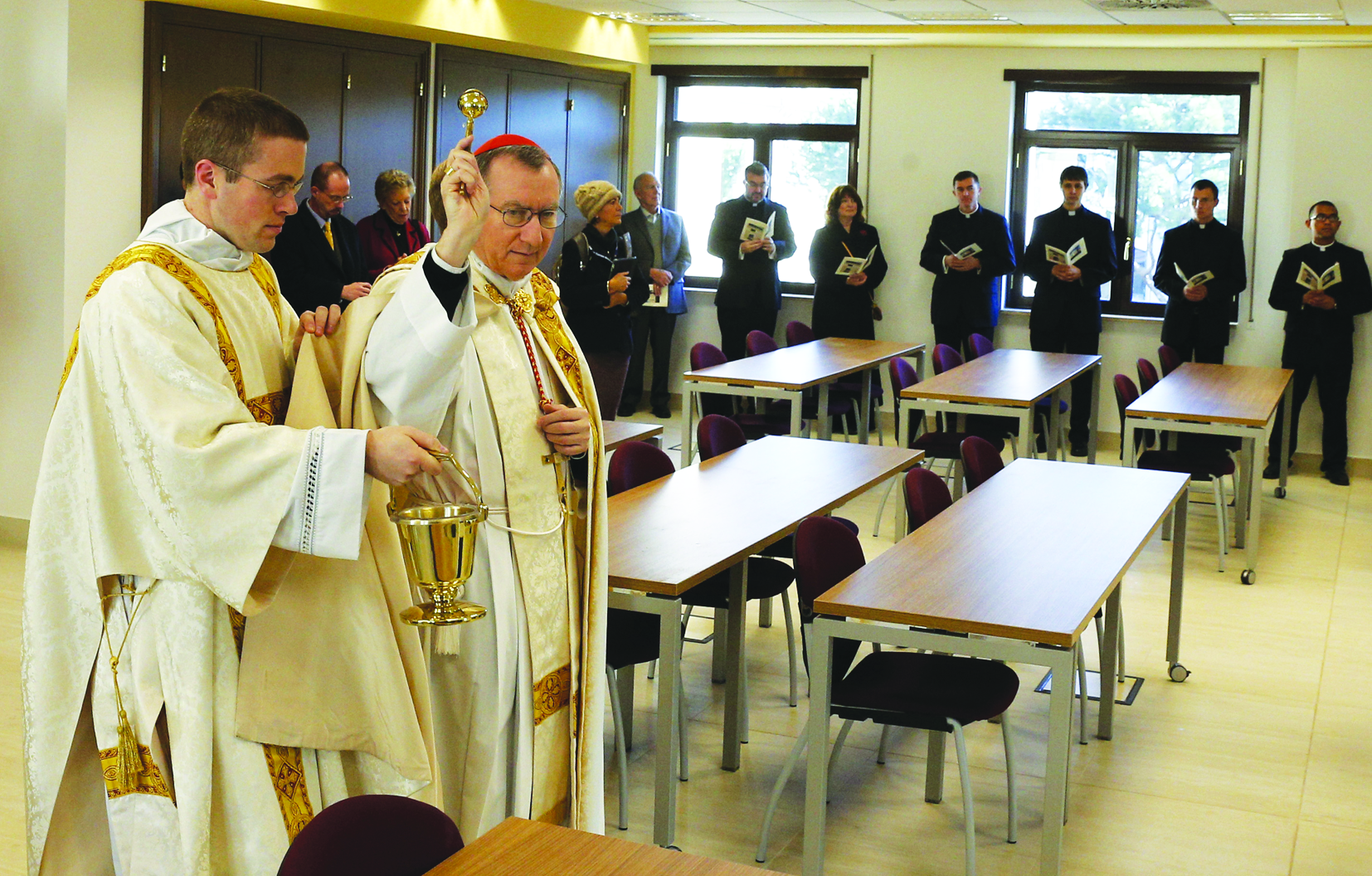
Earlier this year, the American seminary in Rome — the Pontifical North American College (NAC), where Msgr. Burrill was previously a formator — said it will defend itself “vigorously” against a lawsuit filed by a former student, Anthony J. Gorgia, who says he was blocked from continuing his studies there after he had witnessed inappropriate homosexual contact on the part of the vice rector. Gorgia, a former seminarian for the Archdiocese of New York, began studies at the NAC in the summer of 2017. In the 58-page lawsuit, he claims to have been discrimated against because of his heterosexual orientation and the defendants’ desire “to protect themselves from exposure of their predatory homosexuality.” (from CNA)





Facebook Comments